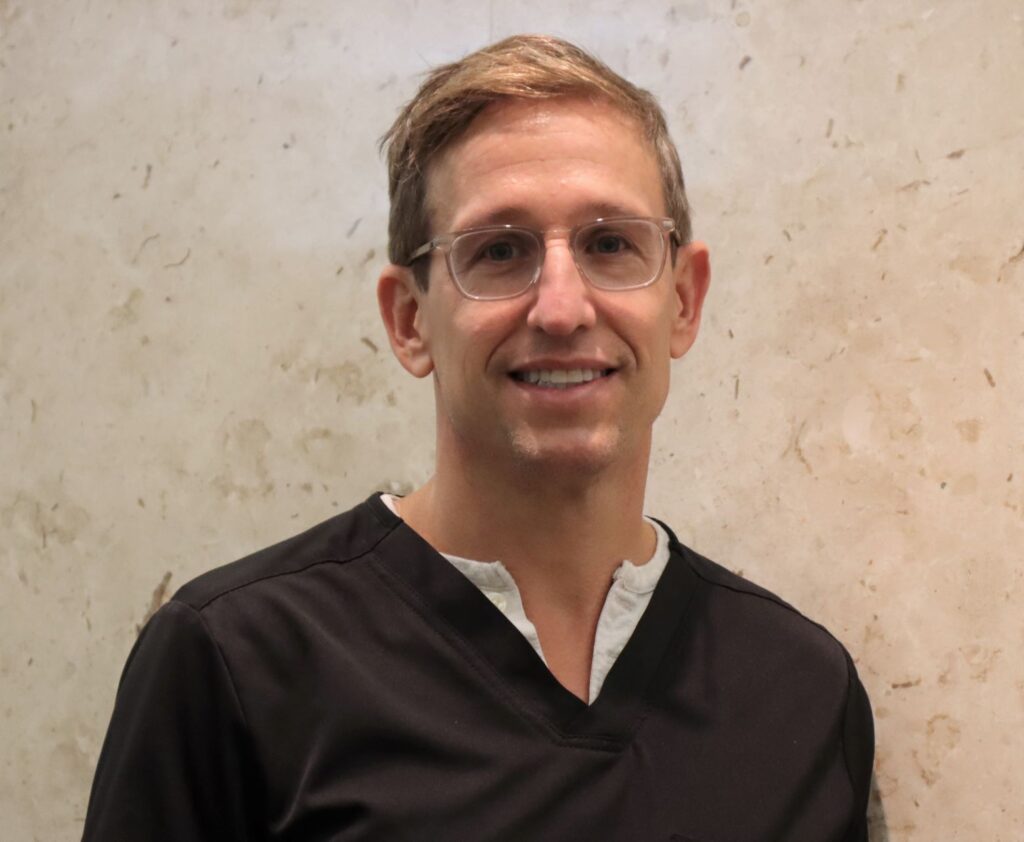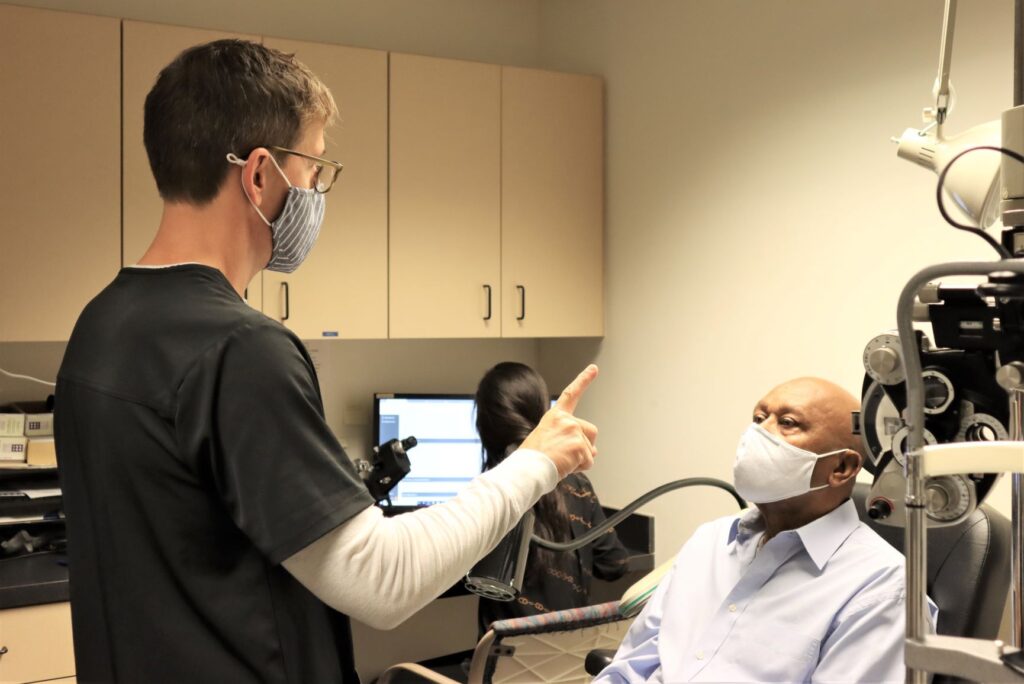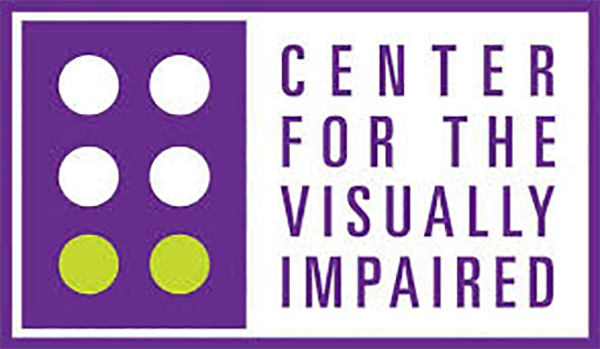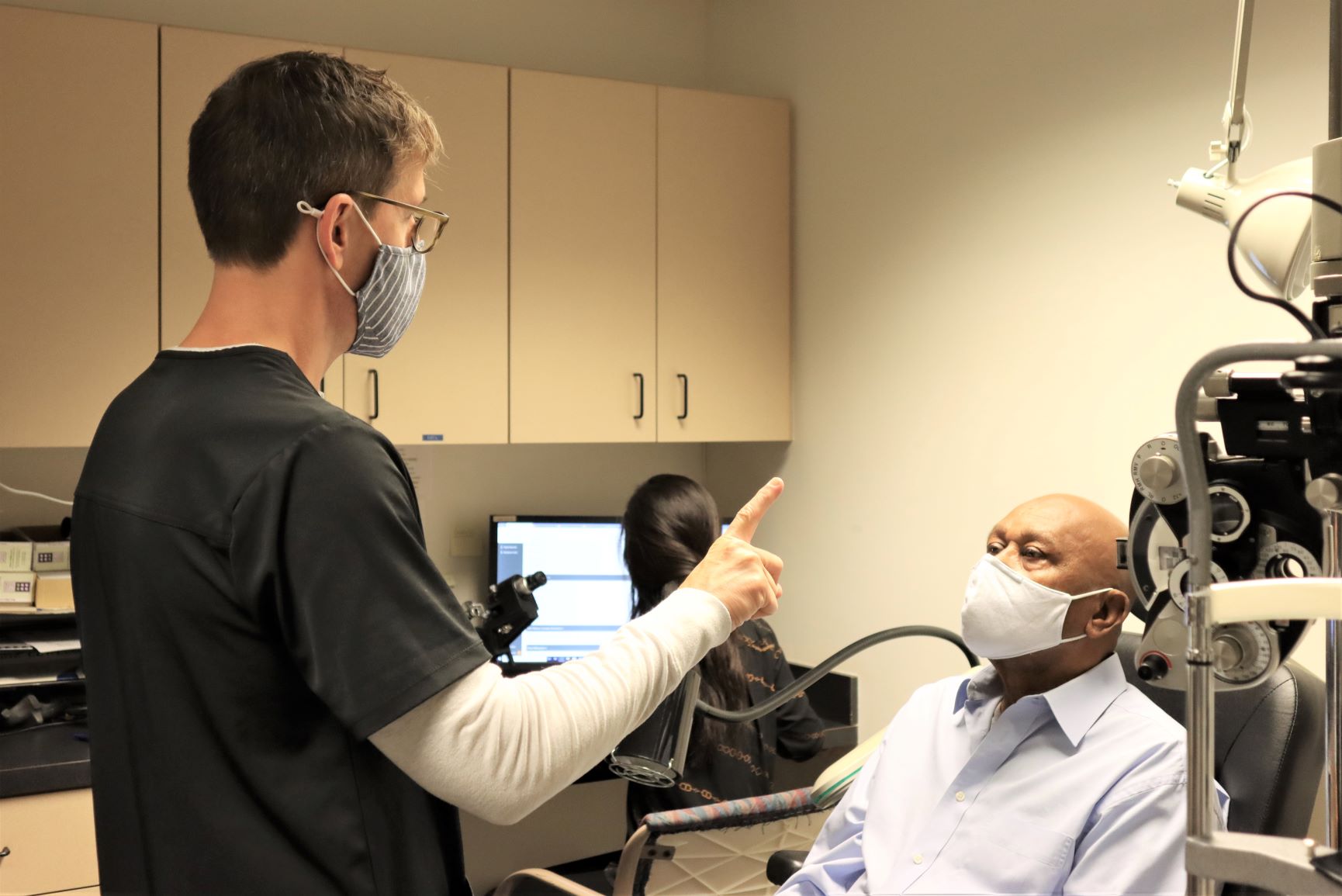
For the last 5 years, patients in the Florence Maxwell Low Vision Clinic have been treated with the compassionate expertise of Dr. Jon Forché. One of Georgia’s leading optometrists, Dr. Forché is driven to serve people who are experiencing vision loss. “There is such a need for rehabilitative optometry.” says Dr. Forché. “I have spent the last 20 years doing everything I can to help people of all ages in their vision journey. It is rewarding work, especially when I can give clients a sense of hope.”
Dr. Forché says that we need to pay closer attention to eye care as we age. When vision changes, an appointment with a primary care eye doctor is recommended. The eye doctor must determine whether a change in vision is caused by disease or other ophthalmic reason. Often conditions like macular degeneration or diabetic retinopathy means vision will continue to decline, and glasses or other medical treatments will not improve the condition. It is at this point, that people should come to CVI for a full, comprehensive low vision exam.
The low vision exam conducted by Dr. Forché draws on his expertise and knowledge of eye diseases and functionality, but also involves careful listening. “Every patient is different, and it takes some time to establish trust.” Dr. Forché notes that often his role is as much as counselor as doctor. “It is so important that I meet the client where they are in their vision journey. I help them understand their vision diagnosis and explore the options and aids available that can help them regain confidence in what they are able to do.”

His assessment begins in the CVI waiting room where he can observe how well the person moves and whether they have navigation challenges. In the exam room, Dr. Forché reviews the medical diagnosis and explains exactly what the condition means. He listens for the patients’ fears and frustrations, then provides rehabilitative solutions. Together they experiment with hand-held magnifiers that can help improve reading and ability to access text, try glasses with filters to cut down glare when they are outside, and discuss environmental stresses that may be contributing to their ability to engage with the world. The client then meets with CVI’s Occupational Therapist for guidance on devices to make the best use of their remaining vision and recommendations for other CVI services such as Orientation and Mobility training through the Adult Rehabilitation and Support Services Program.
CVI is lucky to have Dr. Forché leading the efforts of the Low Vision Clinic, and with the addition of a second doctor – Dr. Esther Yang – the Clinic is ready to assist even more people.
Don’t let your vision loss diminish how you live – contact the Low Vision Clinic at www.cviga.org or call 404-875-9011.

